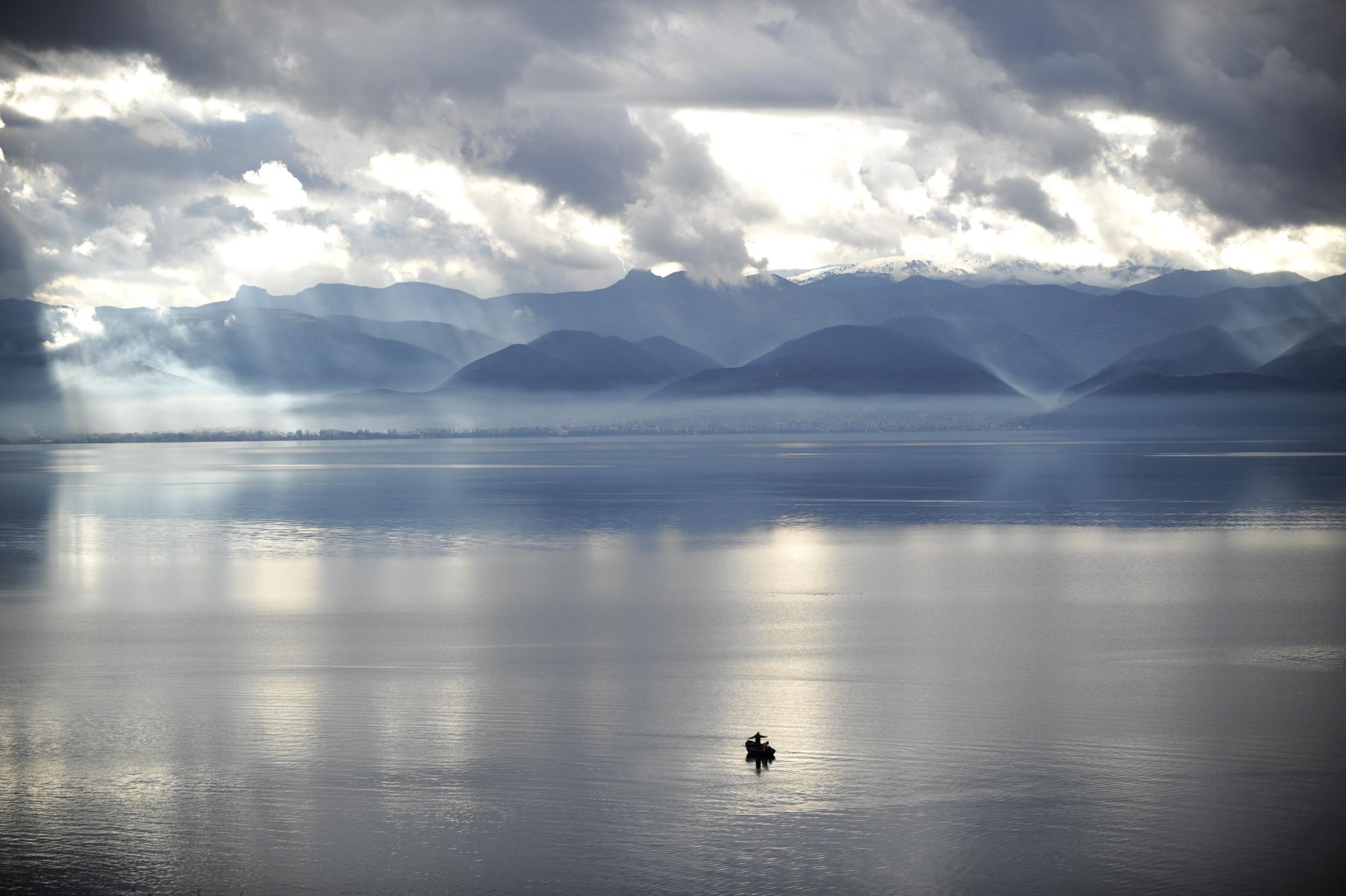Lake Ohrid: Europe’s oldest lake 'under threat' from man-made tourist beaches and luxury homes
'These development plans will irreversibly destroy this crucial ecosystem,' says marine biologist

Your support helps us to tell the story
From reproductive rights to climate change to Big Tech, The Independent is on the ground when the story is developing. Whether it's investigating the financials of Elon Musk's pro-Trump PAC or producing our latest documentary, 'The A Word', which shines a light on the American women fighting for reproductive rights, we know how important it is to parse out the facts from the messaging.
At such a critical moment in US history, we need reporters on the ground. Your donation allows us to keep sending journalists to speak to both sides of the story.
The Independent is trusted by Americans across the entire political spectrum. And unlike many other quality news outlets, we choose not to lock Americans out of our reporting and analysis with paywalls. We believe quality journalism should be available to everyone, paid for by those who can afford it.
Your support makes all the difference.Europe's oldest lake is under threat from Mediterranean style-resorts and man-made sandy beaches, marine biologists have warned.
Known as Europe’s Galapagos, Lake Ohrid in Macedonia is a Unesco Word Heritage Site and home to 350 species found nowhere else in the world.
The lake's fragile eco-system has been protected from human impact by the Studenchishta marsh, which cleans raw sewage and pollution from water flowing into the lake from the city of Ohrid.
But Ohrid’s mayor, Nikola Bakraceski, has announced plans to drain the 75-hectare marsh and build luxury housing complete with a marina. The proposals also include the replacement of nearby reed beds with beaches made from imported sand.
Dr Christian Albrecht, from the University of Giessen in Germany, told New Scientist: “Lake Ohrid is a Holy Grail for biologists from all over the world.
“The lake is not as old as the famous big lakes of the world, such as Baikal or Tanganyika, but it faces a biodiversity crisis.
“If you take its size into account, it is the most biodiverse lake in the world. I am seriously concerned about the future of its endemic species. Many are restricted to a few square metres of the lake.
“These development plans will irreversibly destroy this crucial ecosystem.”
Dr Albrecht was part of an international team which drilled nearly 600m into the lake’s sediment to chart its history.
It found a “combination of longevity and stability” was responsible for the evolution of so many endemic species.
The Independent has contacted the city's authorities for a response to criticisms of scientists and environmental campaigners.
Join our commenting forum
Join thought-provoking conversations, follow other Independent readers and see their replies
Comments